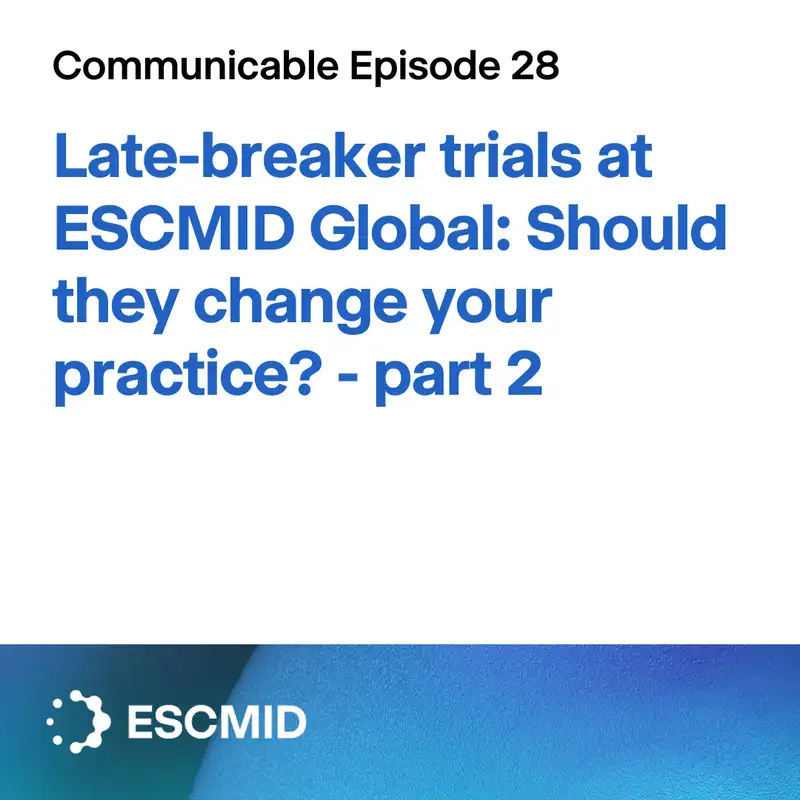Editors of CMI Comms, Josh Davis, Erin McCreary and Emily McDonald return for round 2 taking turns to summarise and discuss late-breaker trials presented at ESCMID Global 2025 in Vienna, and whether or not these trials should change your practice. Part 2 covers the ALABAMA trial exploring the safety of penicillin-allergy delabelling using the penicillin allergy assessment pathway, the SOLARIO trial investigating short (≤7 days!) versus long (≥4 weeks) antibiotic courses for orthopaedic infections, the EAGLE-1 trial assessing oral gepotidacin for gonorrhoea, a randomised clinical trial (RCT) from Thailand on oral fosfomycin as carbapenem-sparing, de-escalating therapy in complicated UTIs, and a double-blind RCT from Israel comparing neutralising plasma to placebo for West Nile fever.
This episode was peer reviewed by Dr. Emanuele Rando of Hospital Universitario Virgen Macarena, Seville, Spain and is the second of this two-part series covering selected clinical trials presented at ESCMID Global 2025.
Late-breaker trials
- Sandoe J, et al. Penicillin allergy assessment pathway versus usual clinical care for primary care patients with a penicillin allergy record to assess safety, de-labelling and antibiotic prescribing: The ALABAMA randomised controlled trial
- Angkanavisan K, et al. Oral fosfomycin after carbapenems as de-escalating therapy in complicated urinary tract infection: A randomised
controlled trial - Canetti M, et al. Neutralising plasma versus placebo for hospitalised patients with West Nile fever: a double-blind randomised controlled trial
- Dudareva M, et al. Short or long antibiotic regimes in orthopaedics: the SOLARIO multicentre randomised controlled trial
- Wilson, J. Phase 3 randomised trial of oral gepotidacin for the treatment of uncomplicated gonorrhoea (EAGLE-1)
References
 S2E28
S2E28